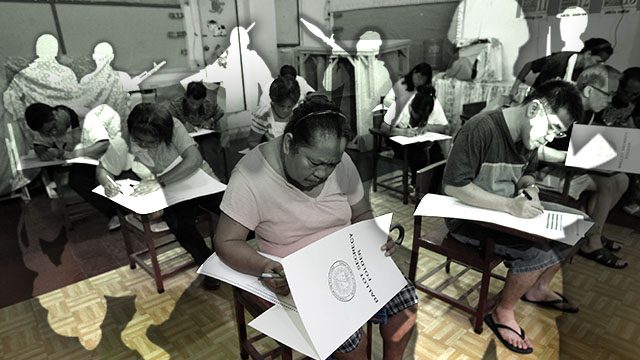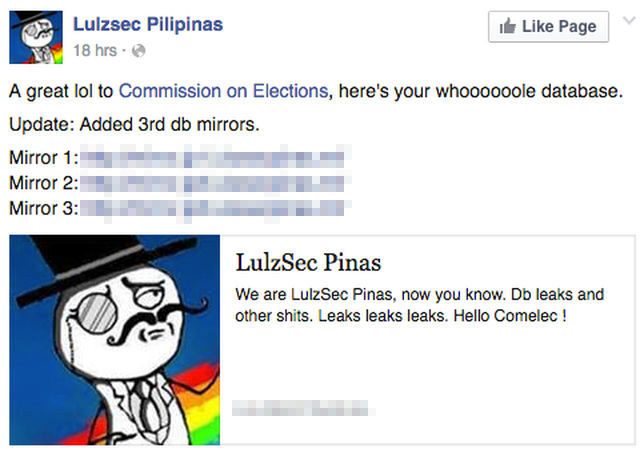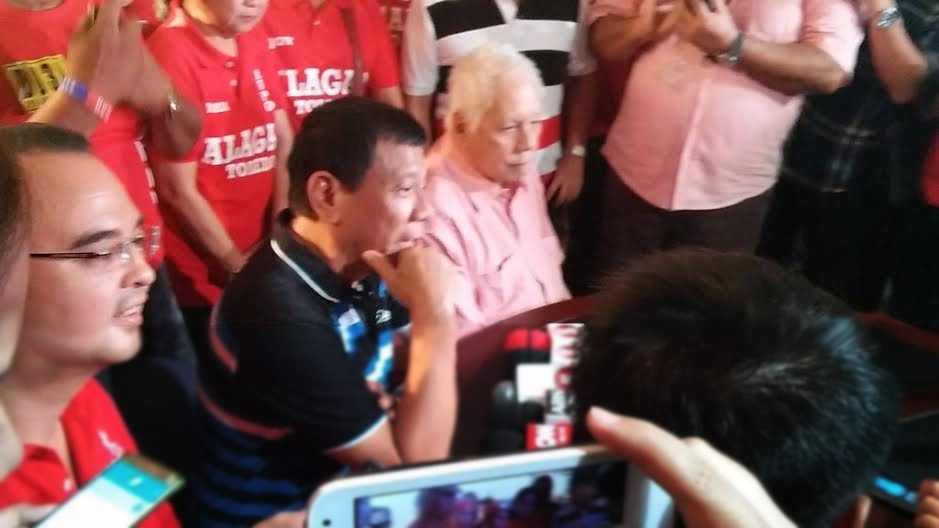SUMMARY
This is AI generated summarization, which may have errors. For context, always refer to the full article.

MANILA, Philippines – It has all the ingredients of what is wrong and what can be solved if only the right leaders were in place. Last week’s Kidapawan protest dispersal that killed two farmers and wounded scores of protesters and cops happened as the country entered the final phase of the campaign period for the May 9 elections. And it could not have come at a worse (or better) time for the sectors and personalities linked to it.
At the center of the storm is the Aquino administration and the elections that it hopes to win. Given its complex landscape, intractable problems, and the interlocking networks of the armed and the unarmed, Mindanao has always been every government’s Achilles heel, but more so this administration.
Joseph Estrada had the fall of Camp Abubakar and its aftermath; the Maguindanao massacre happened under Gloria Macapagal Arroyo; Aquino had the Zamboanga siege, the Mamasapano clash, and now the bloodshed in Kidapawan.
What role will the Kidapawan issue play in the homestretch of a tight national race and rowdy local races?
Elections and the armed
Because of their history of taking sides in the elections, the police and the military were urged last week to stay neutral.
Zamboanga del Norte, for example, was witness to polarized local races in 2013 that saw policemen and soldiers aligning themselves with candidates. In a pastoral letter last April 3, Dipolog Bishop Severo Caermare asked both to not allow themselves to be used by politicians. He explained in a Rappler interview: “Let us not use what had happened in the past as the measure of what will happen in the coming elections. Let us always be vigilant and watchful.”
The communist New People’s Army (NPA), on the other hand, makes no bones about their involvement in these elections.
In Northern Mindanao, the guerrillas said 10 of their platoons have set up checkpoints along national highways to ensure “smooth” campaign in rebel areas. Candidates passing through these areas “must coordinate with the NPA command in the area and they will be accompanied by revolutionaries in the conduct of their campaign,” a local NPA spokesman said.
Voters’ data compromised?

The biggest headache for the Commission on Elections last week – on top of having to explain its decision to buy “bibs” as uniforms for election personnel and canvass votes in a posh hotel – is what experts consider to be the biggest leak of personal data following the hacking of the poll body’s database.
Hackers boasted on March 27 that they had accessed the Comelec’s database of 55 million registered voters and uploaded it online. The Comelec said there’s no cause for alarm since these are publicly available data anyway. Experts believe otherwise, warning about extreme cases where voters’ personal information could be used to commit identity theft.
Aquino plays bad cop
In his own sorties as he campaigns for his anointed candidates, President Benigno Aquino III continues to hit the rivals of administration bet Manuel “Mar” Roxas II. Signs of desperation, critics say. The President punched holes in Grace Poe’s stand on the country’s maritime dispute with China over the West Philippine Sea and her announcement that she would name a retired Marine colonel to be her anti-crime czar. He warned voters against electing Rodrigo Duterte who, he said in so many words, has dictatorial tendencies. Aquino’s candidates Roxas and Leni Robredo have yet to top the surveys barely 5 weeks before election day.
Binay and his ‘allies’

After dropping Jejomar Binay, the One Cebu party led by the Garcia clan is endorsing Duterte’s presidential bid.
“We share the longing of the Bisaya population to finally have a Bisaya president after 60 years,” said Winston Garcia. The Garcias cut ties with Binay and his United Nationalist Alliance after UNA’s reported failure to coordinate with One Cebu on local campaigns.
Duterte himself visited Toledo City in Cebu, whose mayor, John Henry Osmeña, is supporting Binay. Osmeña insisted he continues to back Binay even if his brother, former Cebu Governor Lito Osmeña, has declared support for Duterte.
In another vote-rich province, Laguna, Poe met with another Binay ally, dismissed Governor Emilio Ramon “ER” Ejercito. It was Poe’s second visit to the 4th most vote-rich province. Two warring families – the the Ejercitos and the San Luises – welcomed her.
The layers of vote buying
As campaign teams gear up for election day, watchdogs are on the lookout for election rules violations, especially the most rampant one: vote buying.
While it’s a criminal act, vote buying has become more the norm than the exception in Philippine elections. It is systematic. It knows no limits in terms of amount. And it remains prevalent even if the polls are now automated.
How does it work? Read our report on it. – Rappler.com
- PHVote: Debate fiasco, Marcos-Robredo ‘war’
- #PHVote: Grace Poe’s coup, Duterte’s mob
- #PHVote: Duterte, Poe, Binay, Roxas and a dead heat race
- #PHVote: Candidates, beware the Ides of March
- #PHVote: Poe bounces back, Duterte blows it
- #PHVote: Candidates deal with fluid survey numbers, health issues
Add a comment
How does this make you feel?
There are no comments yet. Add your comment to start the conversation.